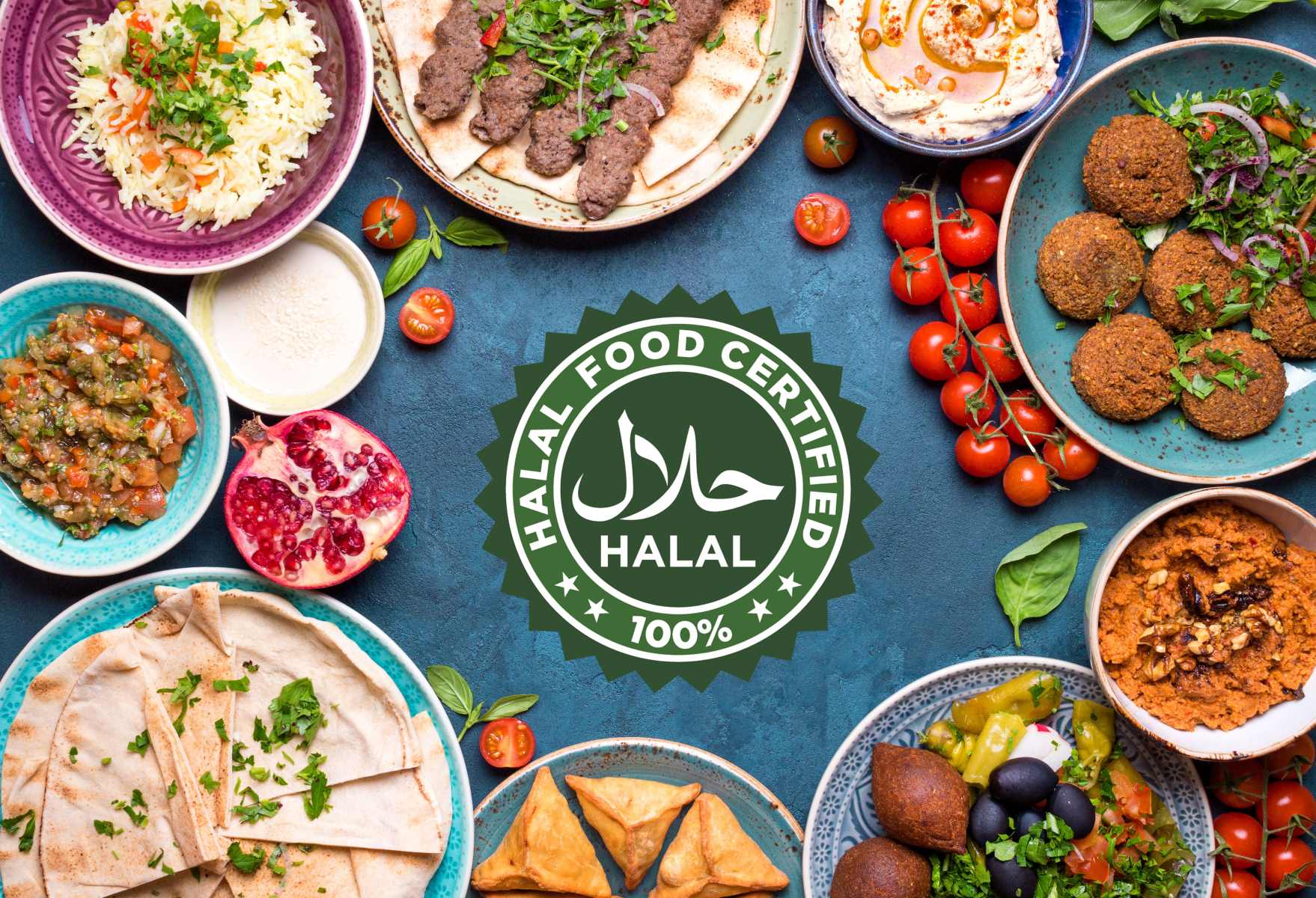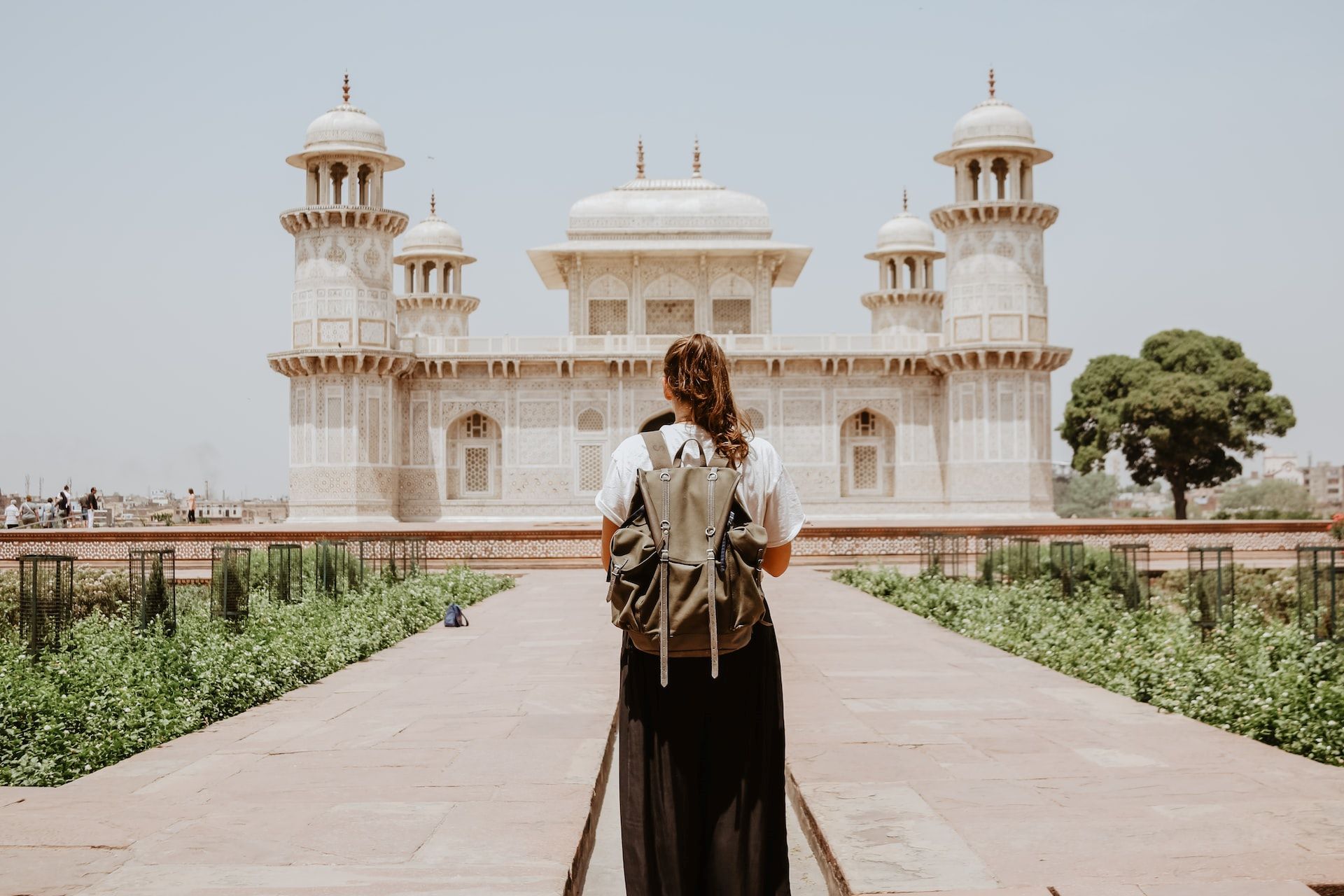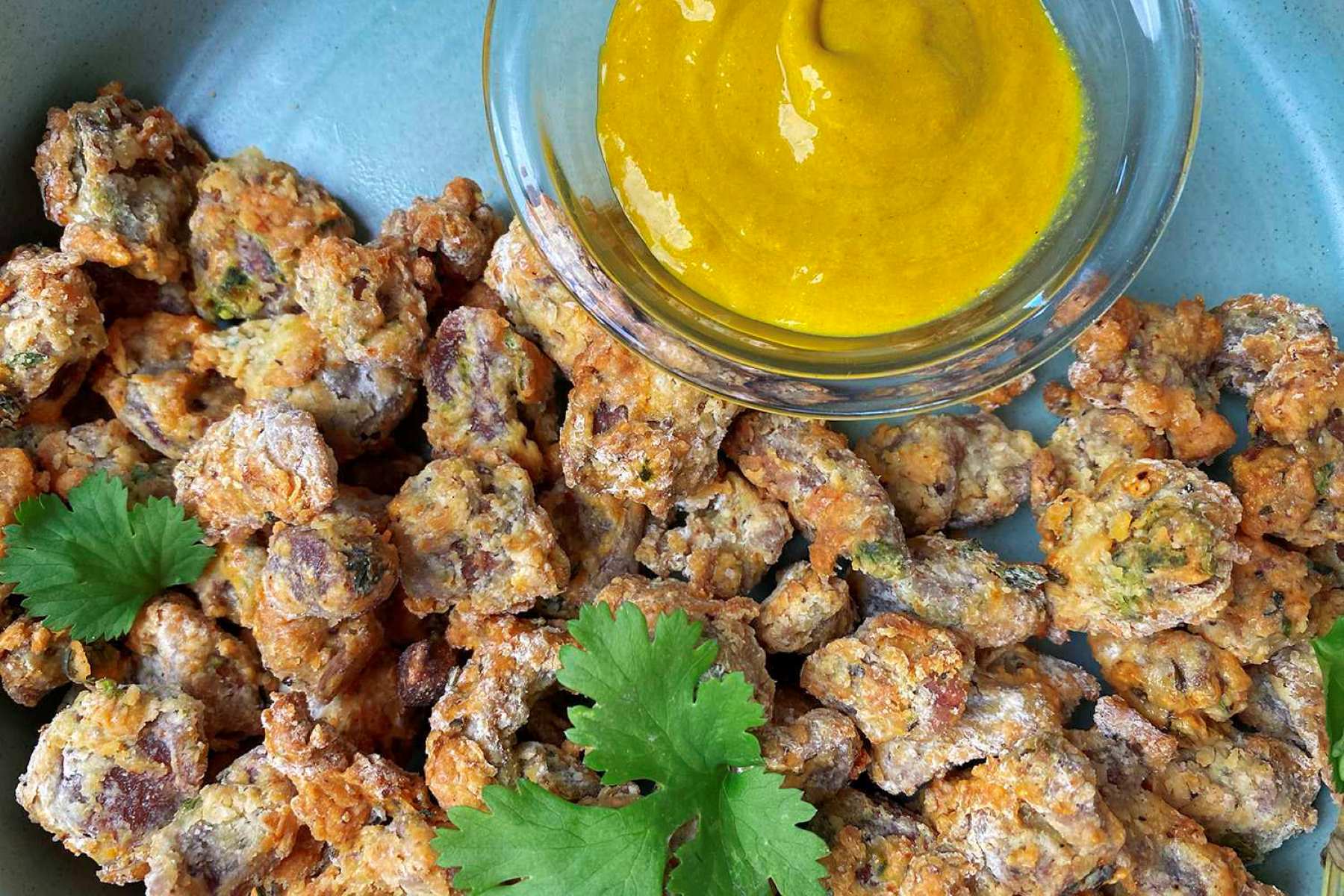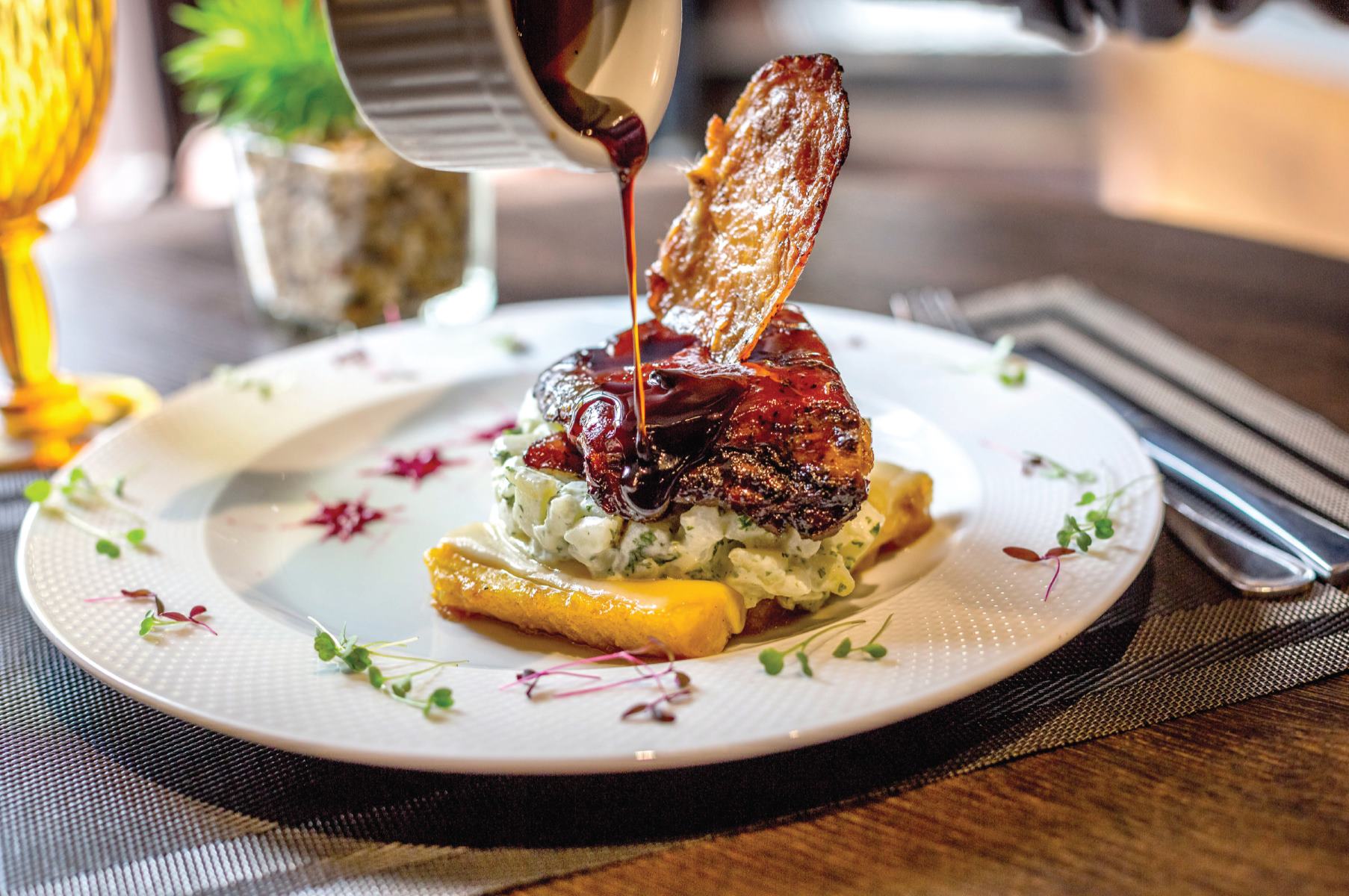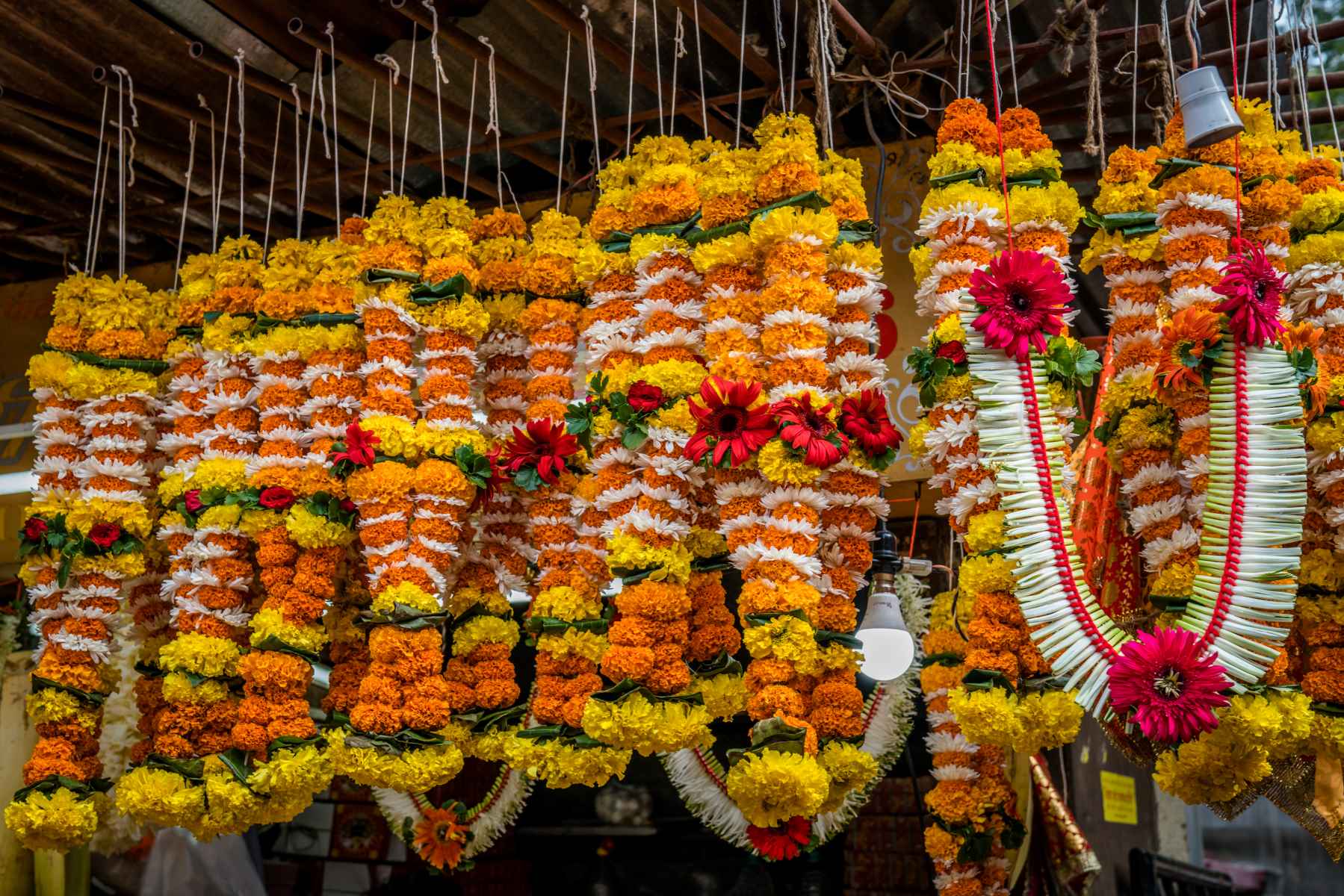Home>Food and Cooking>Discover The Exquisite World Of Halal Food In India


Food and Cooking
Discover The Exquisite World Of Halal Food In India
Published: January 28, 2024
Explore the diverse and delectable world of halal food in India. From aromatic spices to mouthwatering dishes, embark on a culinary journey like no other. Discover the rich flavors and traditions of Indian cuisine.
(Many of the links in this article redirect to a specific reviewed product. Your purchase of these products through affiliate links helps to generate commission for Regretless.com, at no extra cost. Learn more)
Table of Contents
Introduction
Welcome to the enticing world of Halal food in India, where culinary traditions intertwine with cultural diversity to create a rich tapestry of flavors and aromas. Halal, an Arabic term meaning "permissible," refers to food and drinks that adhere to Islamic dietary laws. With a history steeped in tradition, Halal food has flourished across the Indian subcontinent, reflecting the country's vibrant multicultural heritage.
In this article, we will embark on a delectable journey through the historical roots, certification processes, popular dishes, markets, and festivals that define the Halal food landscape in India. From the bustling streets of Delhi to the serene coastal towns of Kerala, the diverse range of Halal cuisine mirrors the country's kaleidoscopic tapestry of traditions and culinary practices.
Join us as we delve into the savory world of Halal food, where every dish tells a story and every bite is a celebration of cultural fusion and gastronomic delight.
History of Halal Food in India
The history of Halal food in India can be traced back to the arrival of Islam in the region, which brought with it a rich tapestry of culinary traditions. The influence of Islamic dietary laws, particularly the emphasis on consuming Halal food, gradually integrated into the diverse Indian culinary landscape. With the advent of the Mughal Empire in the 16th century, the fusion of Persian, Turkish, and Indian culinary techniques gave rise to a sophisticated and flavorful Halal cuisine that continues to captivate taste buds to this day.
During the Mughal era, the royal kitchens of emperors such as Akbar and Shah Jahan became the epicenter of culinary innovation, where skilled chefs concocted elaborate dishes using Halal meat and aromatic spices. This era witnessed the creation of iconic dishes such as biryani, kebabs, and korma, which have become synonymous with Indian Halal cuisine.
As centuries passed, the culinary legacy of Halal food evolved alongside India's historical and cultural transformations. The fusion of regional ingredients, cooking styles, and religious dietary practices resulted in a diverse array of Halal dishes that vary from the fiery curries of the north to the fragrant seafood delicacies of the south.
Today, the history of Halal food in India reflects a harmonious blend of tradition and innovation, preserving age-old recipes while embracing modern culinary influences. The enduring popularity of Halal cuisine across the country underscores its integral role in India's gastronomic heritage, serving as a testament to the enduring legacy of Islamic culinary traditions in the subcontinent.
Halal Food Certification in India
In India, the certification of Halal food plays a pivotal role in ensuring compliance with Islamic dietary laws and providing assurance to consumers regarding the authenticity of Halal products. The process of obtaining Halal certification involves meticulous scrutiny of the entire food production chain, from sourcing raw ingredients to the final distribution of the finished products.
Halal certification in India is typically overseen by recognized Islamic organizations and regulatory bodies that specialize in evaluating and accrediting food establishments. These organizations adhere to stringent guidelines and protocols to verify that the food production processes align with Islamic principles and standards.
The certification process begins with a comprehensive assessment of the sourcing and handling of raw materials. This involves scrutinizing the origins of meat, poultry, and other animal products to ensure that they have been obtained from sources that comply with Halal requirements. Additionally, the examination extends to the ingredients used in food processing, such as additives, flavorings, and preservatives, to confirm their adherence to Halal standards.
Furthermore, the facilities where food is prepared and packaged undergo rigorous inspection to ensure that they adhere to hygienic and Halal-compliant practices. This includes evaluating the cleanliness of equipment, storage areas, and production lines to prevent cross-contamination and uphold the integrity of Halal products.
Once the assessment is complete and the establishment demonstrates compliance with Halal requirements, the certification body issues a Halal certificate, which serves as a testament to the authenticity of the products. This certification not only instills confidence in consumers but also facilitates the export of Halal products to international markets, where adherence to Halal standards is a prerequisite for market entry.
The significance of Halal food certification in India extends beyond domestic consumption, as the country is a major exporter of Halal products to global markets. By obtaining Halal certification, Indian food producers and exporters gain access to a vast network of consumers who prioritize Halal-compliant products, thereby expanding their reach and contributing to the growth of the Halal food industry on a global scale.
In essence, the process of Halal food certification in India underscores the commitment to upholding the sanctity of Islamic dietary laws while fostering consumer trust and facilitating the global trade of Halal products. This certification serves as a testament to the dedication of food establishments in ensuring the authenticity and integrity of Halal food, thus reinforcing India's position as a prominent player in the global Halal food market.
Popular Halal Dishes in India
India's culinary landscape is a vibrant tapestry of flavors, and its repertoire of popular Halal dishes reflects the country's rich and diverse gastronomic heritage. From aromatic biryanis to succulent kebabs, each dish bears the hallmark of centuries-old culinary traditions infused with regional influences. Here are some iconic Halal dishes that have left an indelible mark on India's culinary scene:
Biryani
Biryani, a fragrant and indulgent rice dish, stands as a quintessential representation of Indian Halal cuisine. This beloved dish features tender, marinated meat or vegetables layered with long-grain basmati rice and an array of aromatic spices. The slow-cooking process allows the flavors to meld, resulting in a tantalizing medley of tastes and textures. Whether it's the robust flavors of Hyderabadi biryani or the subtle nuances of Lucknowi biryani, each regional variation offers a unique gastronomic experience.
Kebabs
Renowned for their succulence and smoky aroma, kebabs hold a revered place in Indian Halal cuisine. Whether it's the seekh kebabs crafted from minced meat or the tender shami kebabs made with lentils and spices, these grilled delicacies are a testament to the artistry of Indian kebab makers. Served with fragrant naan bread and accompanied by tangy chutneys, kebabs are a perennial favorite at gatherings and celebrations across the country.
Rogan Josh
Hailing from the picturesque valleys of Kashmir, Rogan Josh is a rich and aromatic lamb curry that embodies the essence of traditional Kashmiri cuisine. The dish derives its distinctive red hue from a blend of Kashmiri chilies and other spices, creating a visually striking and flavorful ensemble. Slow-cooked to perfection, Rogan Josh captivates the palate with its tender meat and harmonious blend of spices, making it a cherished delicacy in Indian Halal dining.
Haleem
A slow-cooked stew comprising wheat, barley, and an assortment of tender meats, Haleem is a beloved comfort food that holds a special place in Indian Halal cuisine, particularly during the holy month of Ramadan. The meticulous preparation and long hours of simmering result in a velvety texture and a harmonious melding of flavors, making Haleem a heartwarming and nourishing dish enjoyed by people of all backgrounds.
Malabar Fish Curry
Hailing from the coastal region of Kerala, Malabar fish curry exemplifies the marriage of robust spices and fresh seafood. Infused with coconut milk, curry leaves, and a medley of spices, this tangy and aromatic dish showcases the coastal culinary prowess of South India. Served with steaming rice or flaky parathas, Malabar fish curry offers a tantalizing burst of flavors that reflects the region's vibrant culinary heritage.
From the regal splendor of biryani to the rustic allure of kebabs and curries, these popular Halal dishes embody the rich tapestry of flavors that define Indian cuisine. Each dish is a testament to the culinary artistry and cultural diversity that form the bedrock of India's gastronomic legacy.
Halal Food Markets in India
In India, the vibrant tapestry of Halal food extends beyond kitchens and restaurants, permeating the bustling thoroughfares of local markets where an array of Halal ingredients, spices, and culinary delights beckon visitors with their tantalizing aromas and vibrant hues. These markets serve as epicenters of gastronomic exploration, offering a treasure trove of Halal products that cater to the diverse culinary preferences of Indian consumers.
One of the most renowned Halal food markets in India is the bustling bylanes of Old Delhi, where the iconic Chandni Chowk market stands as a testament to the city's rich culinary heritage. Amidst the labyrinthine alleys, vendors showcase an assortment of Halal delicacies, from succulent kebabs sizzling on open grills to fragrant biryanis simmering in traditional handis (pots). The air is redolent with the aromas of freshly ground spices, and the vibrant displays of colorful fruits, nuts, and dried fruits add to the sensory tapestry of the market.
In Mumbai, the vibrant Mohammed Ali Road emerges as a mecca for Halal food enthusiasts during the holy month of Ramadan. The bustling street transforms into a culinary paradise, where vendors offer an eclectic array of Halal street food, including delectable kebabs, flavorful curries, and an assortment of sweet treats. The lively atmosphere, illuminated by twinkling lights and resonant with the sounds of sizzling grills, creates a captivating ambiance that draws locals and tourists alike.
Further south, the aromatic spice markets of Kochi in Kerala beckon visitors with their vibrant array of Halal spices, dried herbs, and exotic ingredients. The fragrant air is infused with the scents of cardamom, cinnamon, and cloves, evoking a sensory journey through the culinary traditions of the region. Visitors can explore the bustling spice bazaars, where vendors proudly display their wares, inviting patrons to savor the essence of Kerala's Halal culinary heritage.
In addition to these iconic markets, cities and towns across India boast a myriad of local bazaars and markets that showcase the rich diversity of Halal cuisine. From the aromatic spice markets of Hyderabad to the bustling fish markets of Kolkata, each locale offers a unique tapestry of flavors and culinary experiences that embody the essence of India's Halal food culture.
The Halal food markets in India stand as vibrant hubs of culinary exploration, where visitors can immerse themselves in the kaleidoscope of flavors, aromas, and cultural traditions that define the country's rich gastronomic heritage. Whether it's the bustling streets of Delhi, the vibrant lanes of Mumbai, or the aromatic markets of Kerala, these culinary enclaves offer a tantalizing glimpse into the diverse and flavorful world of Halal food in India.
Halal Food Festivals in India
Halal food festivals in India serve as vibrant celebrations of the country's rich culinary heritage, offering a kaleidoscope of flavors, aromas, and cultural traditions that showcase the diversity of Halal cuisine. These festivals provide a platform for food enthusiasts, both local and international, to immerse themselves in a gastronomic journey that highlights the artistry and diversity of Halal culinary practices across the subcontinent.
One of the most prominent Halal food festivals in India is the "Sajeevani Halal Food Festival" held in Hyderabad, Telangana. This annual event brings together a captivating array of Halal dishes, ranging from traditional Hyderabadi biryanis and kebabs to delectable desserts and refreshing beverages. The festival serves as a melting pot of culinary experiences, where visitors can savor the intricate flavors and aromas that define the region's rich Halal culinary traditions.
In Mumbai, the "Zaiqa-e-Ramadan" festival captures the spirit of communal dining and culinary indulgence during the holy month of Ramadan. This vibrant event transforms the city's bustling streets into a gastronomic paradise, with vendors showcasing an eclectic array of Halal street food, aromatic curries, and sweet delicacies. The festival's lively ambiance, illuminated by colorful decorations and resonant with the sounds of sizzling grills, creates a captivating atmosphere that draws food enthusiasts from all walks of life.
Furthermore, the "Kerala Halal Food Festival" in Kochi celebrates the coastal state's vibrant culinary heritage, featuring an assortment of seafood specialties, aromatic rice dishes, and sumptuous desserts. The festival showcases the unique fusion of flavors and spices that define Kerala's Halal cuisine, offering visitors a tantalizing glimpse into the region's rich gastronomic tapestry.
These festivals serve as vibrant showcases of India's Halal food culture, where visitors can partake in a sensory journey through the country's diverse culinary traditions. From the fragrant spice markets of Hyderabad to the bustling streets of Mumbai and the coastal culinary delights of Kerala, each festival offers a unique opportunity to savor the essence of Halal cuisine in India.
In essence, Halal food festivals in India celebrate the country's culinary diversity and cultural heritage, serving as platforms for fostering appreciation and understanding of Halal culinary traditions. These vibrant events not only showcase the richness of Indian Halal cuisine but also exemplify the spirit of communal dining, cultural exchange, and gastronomic exploration that define the country's culinary landscape.
Conclusion
In conclusion, the world of Halal food in India is a captivating tapestry of culinary traditions, historical legacies, and vibrant gastronomic experiences. From the royal kitchens of the Mughal era to the bustling streets of modern-day cities, Halal cuisine has evolved to become an integral part of India's rich culinary heritage. The historical roots of Halal food in India are intertwined with the arrival of Islamic traditions, resulting in a fusion of flavors and culinary techniques that have endured through the centuries.
The certification of Halal food in India plays a crucial role in ensuring compliance with Islamic dietary laws and upholding the authenticity of Halal products. The rigorous certification process reflects the commitment of food establishments to maintain the sanctity of Halal practices and provide consumers with products that align with their religious and cultural beliefs.
The popularity of iconic Halal dishes such as biryani, kebabs, and curries reflects the diverse and vibrant culinary landscape of India. Each dish embodies the artistry and cultural diversity that define the country's gastronomic legacy, offering a sensory journey through the flavors and aromas that have captivated taste buds for generations.
The Halal food markets across India serve as vibrant hubs of culinary exploration, offering a treasure trove of ingredients, spices, and culinary delights that showcase the rich diversity of Halal cuisine. These markets provide a glimpse into the kaleidoscope of flavors and cultural traditions that define India's culinary tapestry.
Furthermore, the Halal food festivals in India serve as vibrant celebrations of the country's rich culinary heritage, providing a platform for food enthusiasts to immerse themselves in a gastronomic journey that highlights the diversity and artistry of Halal culinary practices across the subcontinent.
In essence, the world of Halal food in India is a testament to the country's cultural diversity, culinary artistry, and historical legacies. It reflects the seamless integration of traditions and the enduring legacy of Islamic culinary practices in the subcontinent. As India continues to embrace its rich gastronomic heritage, the world of Halal food stands as a vibrant testament to the country's culinary diversity and cultural richness.





